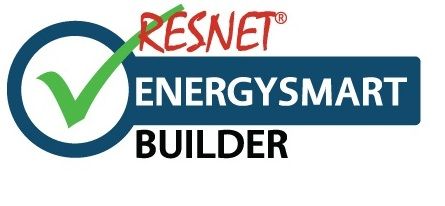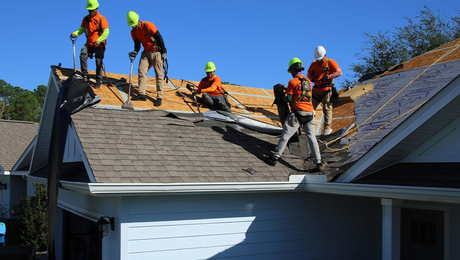
Residential Energy Services Network’s Home Energy Rating System, known as the HERS Index, continues to advance in the marketplace. So far, more than 60 state and regional builders have committed to marketing the HERS Index scores of the homes they build, according to RESNET’s list of partners.
One of the newest to join the list is the Illinois division of the largest builder in the U.S., D.R. Horton.
RESNET, which announced the agreement with Horton on October 6, calls the companies that market their homes’ HERS Index scores RESNET Energy Smart Builders, a distinction intended to highlight the homes’ energy performance – and the reliability of HERS scores – to prospective buyers.
HERS raters collect energy performance data about the home they’re testing and compare it to that of an imaginary reference home of the same size and shape. The reference home is “built” to barely meet the 2006 International Energy Conservation Code. A RESNET-approved computer program calculates the energy efficiency of the home being tested and indexes it to the reference home, which is assigned a HERS score of 100. The lower the HERS score of the tested home, the more energy efficient it is.
Building the HERS Index brand
HERS Index scores do seem to be among the simplest and most concise ways of describing a home’s energy performance to prospective buyers. A number of builders, including production builder KB Home, and other energy-focused agencies, such as the Department of Energy, have come up with “mileage stickers” to help highlight the energy efficiency performance of homes in simple terms. Some stickers use a HERS Index score to tout performance. Some, such as the DOE Home Energy Score and Earth Advantage Institute, cite estimated BTUs used annually. The DOE also has created an EnergySmart Home Scale sticker that features estimated gas and electric usage as well as comparative HERS Index ratings. KB Home’s Energy Performance Guide includes both estimated monthly energy costs and a HERS Index graphic.
Not all RESNET alliances are with builders. Early this year, the Passive House Institute U.S. agreed to become an affiliate member of RESNET, assign an HERS Index rating to Passive House buildings, and “adopt rating standards and procedures that harmonize with the RESNET provisions for Passive House certification, quality assurance, codes of ethics, and standards of practice.” The two organizations also agreed to adopt a uniform calculation of carbon savings for buildings built to the Passive House standard.
Fine Homebuilding Recommended Products
Fine Homebuilding receives a commission for items purchased through links on this site, including Amazon Associates and other affiliate advertising programs.

Handy Heat Gun

8067 All-Weather Flashing Tape

Reliable Crimp Connectors






















